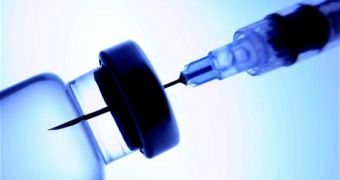Later this year, a team of Brazilian scientists at the University of Sao Paulo are to debut a clinical trial intended to determine whether or not a newly developed AIDS vaccine has any chances of one day helping people infected with HIV.
The researchers working on this project explain that the HIVBr18 vaccine is not designed to prevent HIV infection.
Thus, its purpose is that of helping people who have already contracted HIV by keeping the infection from developing into AIDS, The Inquisitr reports.
More precisely, scientists explain that, if proven effective, this vaccine might one day be used to neutralize said infection while the latter is still in its early stages.
This means that HIV-positive individuals would neither develop AIDS, nor run the risk of infecting others.
The clinical trial that the Brazilian scientists plan to roll out towards the end of 2013 is to be carried out on a colony of rhesus monkeys.
Although some believe that chimpanzees are some of our closest relatives, the researchers maintain that the human immune system is much more similar to that of a rhesus monkey than to that of a chimp.
Therefore, it makes sense that this newly developed vaccine should be tested on these animals.
Work on creating the HIVBr18 vaccine began in 2001, the same source details.
Significant progress has been made since then, yet scientists warn that the vaccine still needs fine-tuning and that people should not work on the assumption that this clinical trial will surely revolutionize HIV and AIDS treatment options.
“Our goal is to test various immunization methods to select the one capable of inducing a stronger immunological response and thus be able to test it on humans,” Professor Edecio Cunha Neto comments on the purpose of this trial.
Caution and a healthy dose of pessimism aside, the scientists believe that, at some point in the not too distant future, they will have enough information to safely test the vaccine on human patients.

 14 DAY TRIAL //
14 DAY TRIAL //